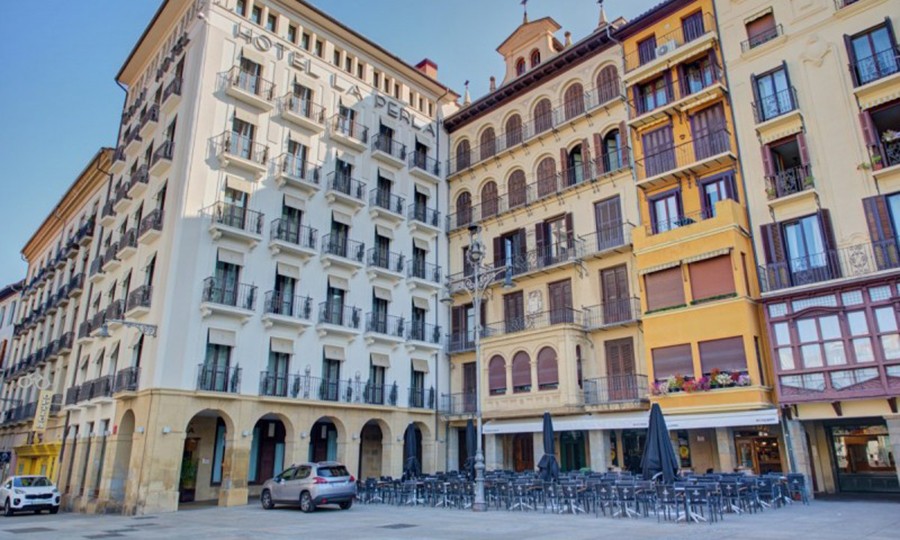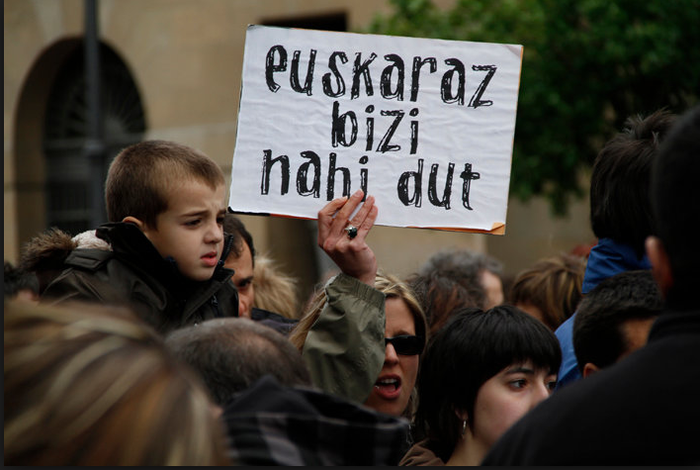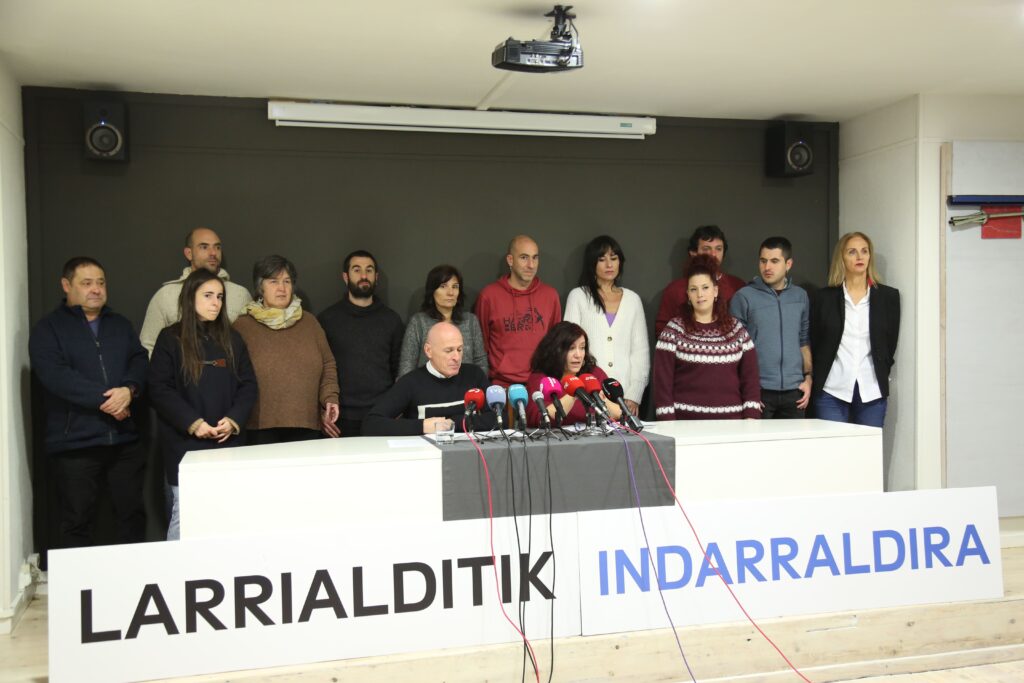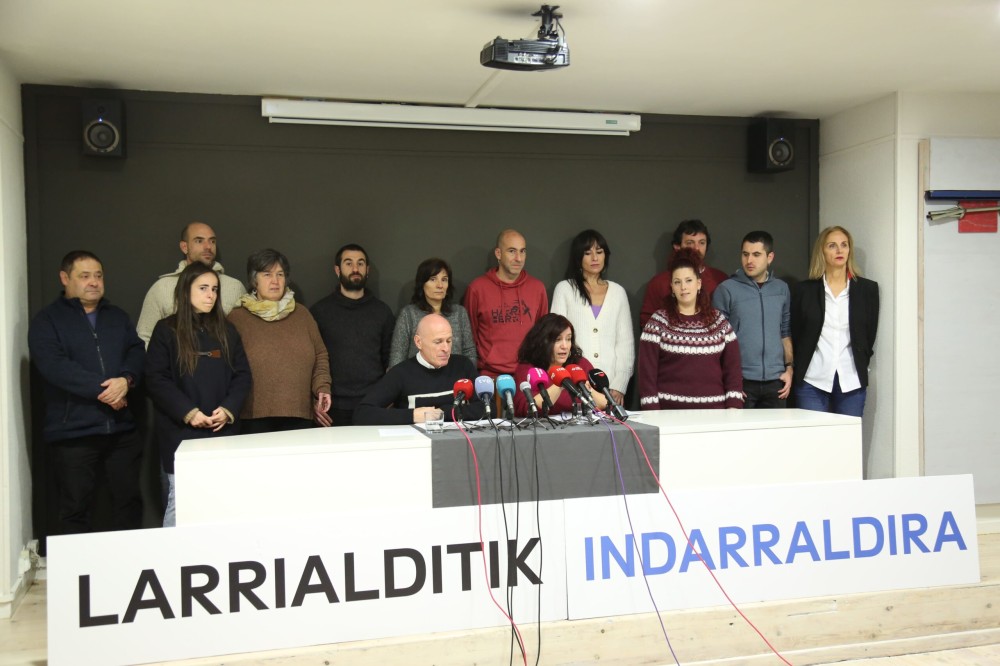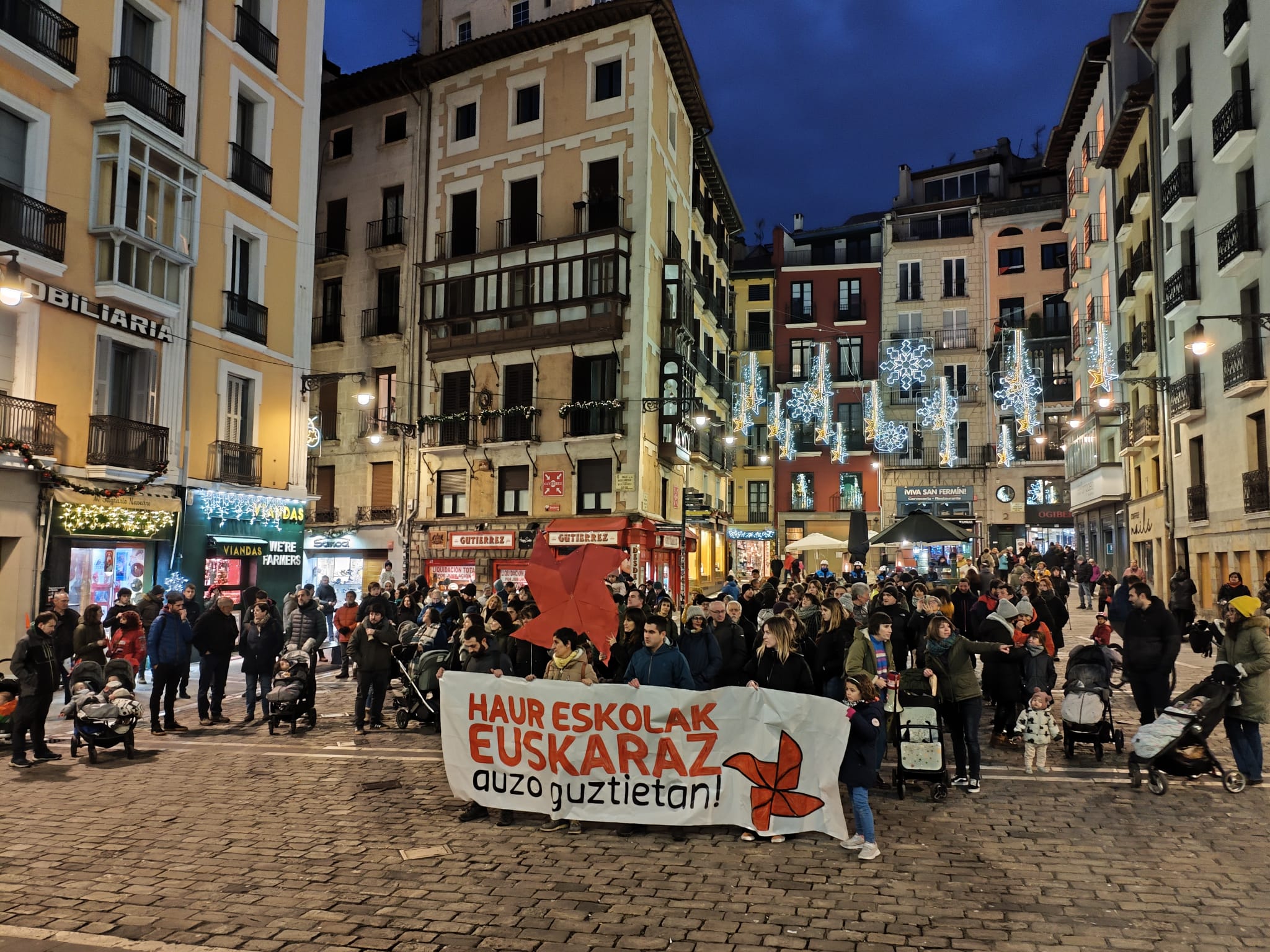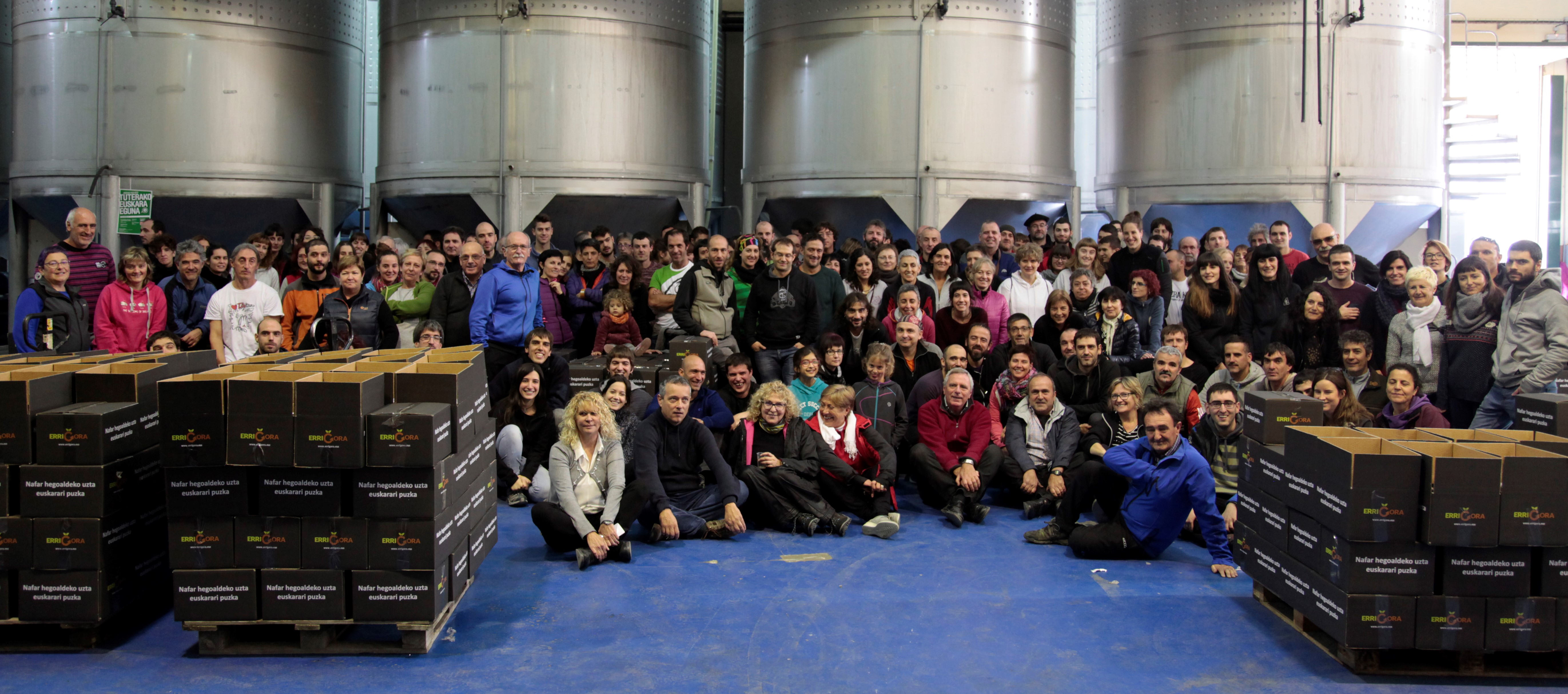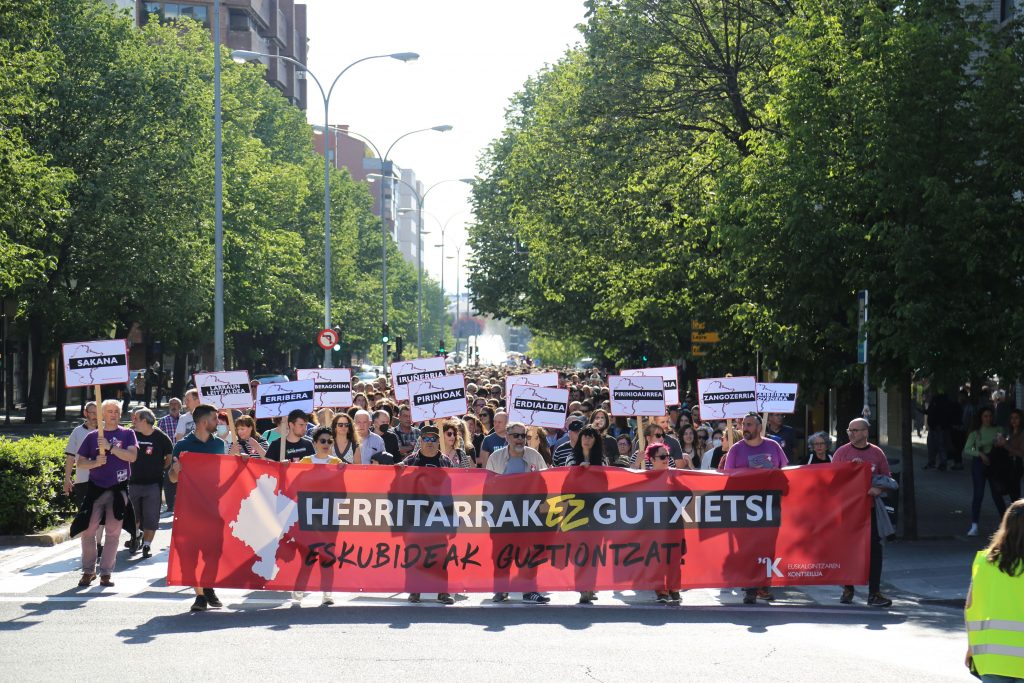Thousands of people in Pamplona ask for the Basque Country to be official throughout Navarre
- In defence of cohesion, equality and justice, it has been claimed that Euskera should be official throughout Navarre. The performative mobilisation organised by the Council in Pamplona has symbolised the need to overcome the division by the current language.

The march has started in three columns from Media Luna Park, Castle Square and the town of Iturrama. The Euskaltzales of different peoples have carried the banners; in the first column, claiming cohesion, in the second, equality and justice, in the third. The first two columns have joined in the vicinity of the Plaza de la Paz and then have met with the column that departed from Iturrama.
The leadership of the council and the delegations of the partners, together with Secretary General Paul Bilbao, have taken the three columns. From each column a citizen (Unai Arellano, Nekane Otamendi and Saioa Crespo) has completed the map with a fragment of the map of Navarra, representing that what is today divided into three parts has to be united in one part.
In the event that took place at the end of the march, the three citizens mentioned have taken the floor. They explain why cohesion, equality and justice have been called for.
Arellano talks about cohesion: “The Basque Country is a good element for making bridges and accessions between the Navarros. The Basque language is the language of Navarre and the Basque language is the crucible that unites us. We need that unity,” he said.
For his part, Otamendi has asked, among others, the following questions: “Are we Navarros or are we not? Of course, yes! And then, why do they treat us differently when we talk about language?” He also pointed out that “the recognition of the equality of linguistic rights for Navarros and Navarras is respect for the dignity of all people”.
Crespo speaks of justice: “The Navarros that we have gathered here today want our descendants to remember how at this time a real change was achieved in Navarre and how it started being fairer with the Basques. The guarantee of rights cannot be left within fortune or chance”.
For his part, EA Secretary General Paul Bilbao thanked all the attendees and all the social partners who have joined the mobilisation in recent days and have promoted it in the same direction. “This is not just a question of the Basque or the Basque people. [Plurality of agents] that demonstrate that today's mobilization is not only a mobilization in favor of the Basque Country... The question is that here you cannot build a society that has as its axis coexistence until we have thousands of citizens deprived of rights. What happens is that, once and for all, we need a new law that recognises the same rights to all citizens, and today, the only legal option is officialdom. Consequently, it will be a rejection of the demand of all these agents, so a law that extends the official to the whole of Navarre is not accepted.”
And he made a clear request to the policy makers: “A few weeks ago I came up with a question to those who are opening the spectre of the official in that previous building [in the Parliament of Navarra]: What problems do you have, what obstacles do you have to recognize the same rights to all Navarros and Navarre? I didn't get an answer. And yes, the next time I go to that house where the laws that condition our future are passed, I'm going to make a request to you. Go to areas other than the official Basque country and tell the citizens who want to live in Basque not to recognize that right. Yes… You will have to tell them that you are not going to recognize them, because that is the truth. Not opening the door to the official, that is what it will assume. We know from whom it is now that a law is passed that integrates citizens equally. Risk, show that you play differently from the previous ones. We have done our work, you have the request of a large majority. It is now up to the representatives of that building to act responsibly,” he said.
In the event, led by Kristina Urrutia, the members of the Hutsu group, who sang the txalaparta with the jota of Gema Martínez and ended with the rap of Ekaitz Astiz, also participated.









